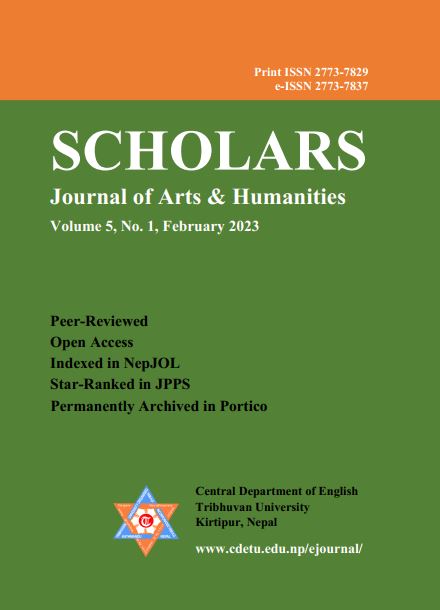Vikram Seth’s From Heaven Lake as a Counter-Orientalist Travel Narrative
DOI:
https://doi.org/10.3126/sjah.v5i1.52476Keywords:
Colonial/orientalist discourse, travel writing, home, West, OrientAbstract
This study reads Vikram Seth’s From Heaven Lake: Travels through Sinkiang and Tibet (1983) as a counter-orientalist travel narrative that destabilizes the conventions of Western travel writing genre. Conventional Western travel writing, as postcolonial scholars such as Edward Said, Homi K. Bhabha and others claim, functioned mostly as a colonial or orientalist discourse by being involved in producing knowledge about the Orient for Western domination and control. It created a binary between the West and the Orient and treated the latter in negative and derogatory terms. The residues of colonial discourse, as critics such as Debbie Lisle, Mary Louise Pratt and others argue, persist in the postcolonial travel writing as well. This paper examines Seth’s travelogue and claims that the travelogue counters the orientalist discourse primarily in two ways. One, it renders differences upon the peoples and their cultures in positive terms, and another, it avoids the conventional home-away-home trajectory of journey. For the analytic purpose, the study engages both available critical responses and theoretical insights from scholars in travel writing and postcolonial theories such as Carl Thompson, Debbie Lisle, Tim Youngs, Edward Said and so on. Finally, the study expects to open up a new approach in the study of post-empire travel narratives, especially written by non-Western writers.
Downloads
Downloads
Published
How to Cite
Issue
Section
License

This work is licensed under a Creative Commons Attribution 4.0 International License.
© Central Department of English, Tribhuvan University and Authors




